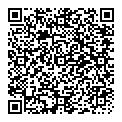
06 nov 2024
The European Union is tightening cash controls at its borders, targeting amounts equal to or exceeding 10, 000 euros.
Italy is aligning with this by expanding the definition of 'cash' to include prepaid cards, as part of a legislative decree under review.
This move aims to combat money laundering and criminal financing by redefining cash to encompass currency, bearer negotiable instruments, and non-nominal prepaid cards.
The decree mandates strict declaration requirements for cash entering or leaving the EU, with significant penalties for non-compliance.
Data privacy is maintained, with access restricted to authorized personnel, and data retention is limited to five years.

Introduction to Enhanced Cash Controls
The European Union has implemented stringent measures to monitor cash flows across its borders, specifically targeting amounts equal to or exceeding 10, 000 euros. This initiative is part of a broader effort to curb illicit financial activities, such as money laundering and the financing of criminal enterprises. Italy is actively participating in this initiative by expanding the definition of 'cash' to include prepaid cards, as outlined in a legislative decree currently under preliminary review by the Council of Ministers.Redefining Cash and Its Implications
The legislative decree aims to redefine the scope of what constitutes 'cash' for regulatory purposes. This expanded definition now includes not only traditional currency, such as banknotes and coins, but also bearer negotiable instruments and non-nominal prepaid cards. Bearer negotiable instruments are defined as those that allow the holder to demand payment without needing to prove their identity or right to the funds. Examples include traveler's cheques, bearer cheques, and money orders issued without a specified beneficiary.Prepaid Cards Under Scrutiny
A significant aspect of the decree is the inclusion of non-nominal prepaid cards in the definition of cash. These cards, which store monetary value or provide access to funds, can be used for payments, purchasing goods or services, or currency exchange without being linked to a bank account. By equating these cards with cash, the decree subjects them to the same regulatory scrutiny and declaration requirements.Declaration Requirements and Penalties
The regulation mandates that any cash amount exceeding 10, 000 euros, whether entering or leaving the EU, must be declared to customs authorities. This includes cash that is not physically accompanied by a person, such as in postal packages or unaccompanied luggage. Failure to declare such amounts can result in significant penalties, including the temporary retention of the funds by customs authorities until a proper declaration is made.Seizure and Administrative Sanctions
In cases where undeclared cash is discovered, authorities are empowered to seize a portion of the funds. The percentage seized varies based on the amount, with up to 100% of the excess over 100, 000 euros being subject to seizure. Administrative fines are also imposed for non-compliance, with rates ranging from 15% to 100% of the undeclared amount, depending on the severity of the infraction.Data Privacy and Retention
The decree ensures that data collected during cash control operations is handled with strict confidentiality. Access to this data is limited to authorized personnel, and it cannot be disclosed without explicit permission from the competent authority. Data retention is capped at five years, with a possible extension of up to three years if justified by ongoing anti-money laundering or anti-terrorism efforts.Critical Aspects and Potential Issues
- The broad definition of 'cash' may lead to challenges in enforcement and compliance.
- The inclusion of prepaid cards could impact legitimate users who rely on them for convenience.
- Balancing effective regulation with privacy concerns remains a critical issue.
Common Pitfalls and Errors
- Failure to declare cash amounts accurately can lead to severe penalties.
- Misunderstanding the scope of what constitutes 'cash' under the new regulations.
- Incomplete or inaccurate information in declarations can result in fines.
Suggestions and Useful Tips
- Ensure thorough understanding of the new definition of 'cash' and related obligations.
- Maintain accurate records and documentation for all cross-border cash transactions.
- Seek legal advice if uncertain about compliance requirements to avoid penalties.

